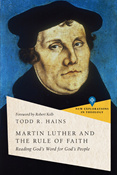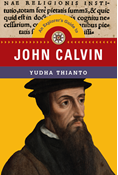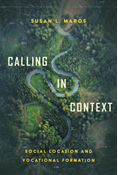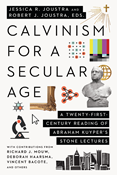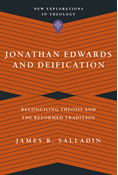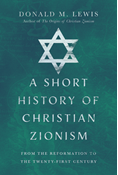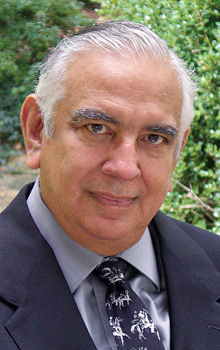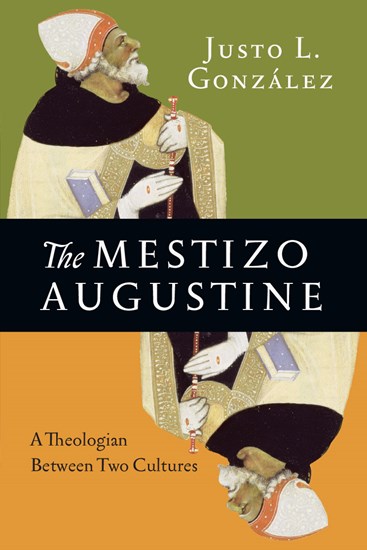
|
The Mestizo Augustine
paperback
|
- Length: 176 pages
- Published: November 01, 2016
- Imprint: IVP Academic
- Item Code: 5150
- ISBN: 9780830851508
-
Other Retailers:
Amazon*
*affiliate partner
Few thinkers have been as influential as Augustine of Hippo. His writings, such as Confessions and City of God, have left an indelible mark on Western Christianity. He has become so synonymous with Christianity in the West that we easily forget he was a man of two cultures: African and Greco-Roman. The mixture of African Christianity and Greco-Roman rhetoric and philosophy gave his theology and ministry a unique potency in the cultural ferment of the late Roman empire.
Augustine experienced what Latino/a theology calls mestizaje, which means being of a mixed background. Cuban American historian and theologian Justo González looks at the life and legacy of Augustine from the perspective of his own Latino heritage and finds in the bishop of Hippo a remarkable resource for the church today. The mestizo Augustine can serve as a lens by which to see afresh not only the history of Christianity but also our own culturally diverse world.
"In this delightful study of Augustine's life and intellectual legacy, Justo González, a doyen of church historians in the Americas, demonstrates the rich fruit of a lifetime of scholarly research. If one were to ask, how could anything new be said about Augustine?, González replies that it is the man's fundamental context that has so far been severely neglected. Augustine was a colonial author, well aware of his situation, poised in a tensile relation between the Numidian and Romano-Latin worlds, in an overextended empire that was coming to a crisis point in his own lifetime. This constitutes him, as González persuasively argues, as fundamentally a mestizo theologian: a man fixed in a tension of perspectives, origins, and goals that formed the energized background of his mind and work. After too many generations that have pretended Augustine was a white European, it is refreshing to read this elegant study of one of the giants of the Western Christian tradition."
"In a particularly insightful study, Justo González both introduces the breadth of St. Augustine's thought to modern readers and explains why his theology should be considered mestizaje (characterized by in-between-ness). Augustine—as both Roman and African, as a mediator between early Christianity and medieval Christianity—becomes a potent model for the many others, like González himself, who stand between worlds, cultures, and perspectives. It is a fine book."
"I am deeply pleased to see the new book by Justo González on Augustine, which places him rightly in the African context. The author's theme of the crosscultural intricacies of Augustine's life illumines many other issues Christians face today. It is an extremely readable book by a distinguished church historian."
"There are many fine introductions to Augustine's life and thought. But it is hard to think of one more timely for a new generation of readers than The Mestizo Augustine. With concise elegance and critical appreciation, Justo González recasts our imagination for Augustine's restless pilgrimage as the struggle and the wisdom of a mestizo. In doing so, he offers a compelling theological portrait of this massively influential figure of late antiquity and, importantly, of his continued relevance for our own era tempted by misplaced rage for purity."
"Justo L. González ranks among the most important and influential interpreters of Christian history in our era. The Mestizo Augustine is yet one more outstanding achievement. This groundbreaking study of Augustine offers compelling new insights into the life and thought of the great North African theologian and pastor from the perspective of mestizaje while advancing the overall project of mestizaje theology itself to a significant degree."
"Justo González provides us with a unique and compelling retelling of the life of Augustine. He focuses on the mestizajes of Augustine's life to show us that his rich theology was born at the crossroads of peoples, languages, cultures, ethnicities, and social change. It is here that we encounter the deepest tensions of human existence but also where we can reflect most deeply on our understanding of God and our relationships with each other. We can thank González for reminding us through the life of Augustine that the mestizajes that we try to forestall or even deny 'may well be a sign of the future from which God is calling us.'"
"In a fresh, masterful, and highly readable way, Justo González shows the ongoing relevance and importance of the multicultural St. Augustine engaging his own contexts from a place between and within cultures. González provides new lenses for us to appreciate the mestizo Augustine as a resource for theology, ministry, and emerging ways of being church for our own contemporary multicultural, multiethnic, and globalized contexts in a racialized society."
"All who read it will be grateful to González for bringing Augustine and his works alive for contemporary readers so as to sustain the hope that his enduring influence on Christians will continue to enlighten men and women for many generations to come."
"Gonzalez's historical analysis has a liberatory theological aim: to embolden his readers to recognize the depth of their own mestizaje and embrace it as the future. His volume, which builds on the work of Virgilio Elizondo and other Hispanic theologians, is a timely and necessary contribution to Augustinian studies, patristic studies, and church history."
"González has a gift for understanding context and nuance, and the result is a vivid and sympathetic portrayal of Augustine and a person and thinker."
CONTENTS
Preface
Abbreviations
Introduction
A Unique Theologian
Mestizaje and Theology
Augustine the Mestizo
1. A Tortuous Path to Faith
The Context
His Family
His Studies
Manichaeism
2. Conversion and Baptism
Milan
Neoplatonism
Ambrose
Internal Struggles
The Garden
Cassiciacum
His Baptism
Ostia
3. From the Baptistery to the Pulpit
Return to Africa
Other Early Writings
Monastic Life
Hippo
Pastoral Tasks
4. The Shepherd and the Manichaeans
Manichaeism
Augustine's Writings Against the Manichaeans
The Manichaeans and Augustine's Thought
5. The Shepherd and the Donatists
The Background
The Origins of Donatism
The Course of Donatism
Augustine's Theological Intervention
The Role of Politics
The Later History of Donatism
Augustine's Victory and Defeat
6. The Shepherd and the Pelagians
Pelagius
Pelagianism
Augustine Enters the Controversy
Augustine's Response
Between Two Cultures
The Controversy Continues
7. The Shepherd and the Pagans
The Nature and Strength of Paganism
The Debate Before Augustine's Time
The Fall of Rome
Augustine's Response
8. Augustine as a Lens for Western Christianity
Index






